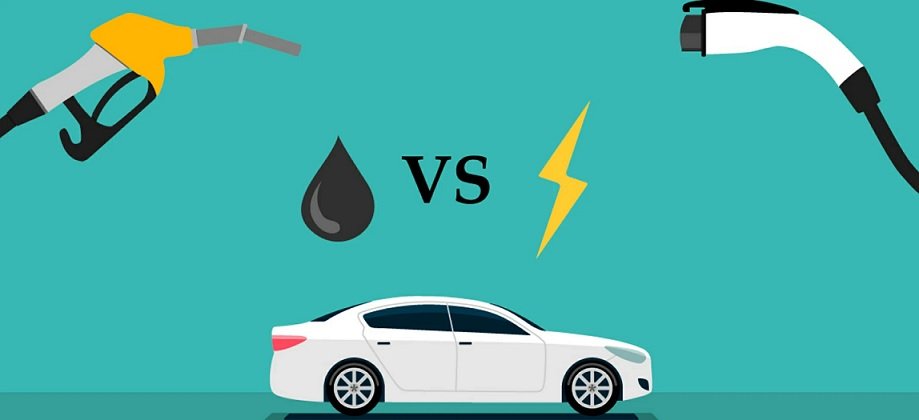Switching from traditional combustion engines to electric mobility is no longer just a futuristic idea but an active debate in households and businesses alike. Many drivers are questioning whether plugging in a vehicle is truly more affordable compared to filling up at the pump. The discussion goes beyond simple fuel costs and stretches into areas like maintenance, charging infrastructure, and resale value. For readers looking to compare personal finances, this website provides additional insights into alternative ways of evaluating long-term savings, which can also be applied to lifestyle and transport choices.
Understanding the Initial Investment
Choosing between electric and gasoline-powered vehicles often begins with the upfront purchase price. Electric models generally carry a higher sticker tag compared to similar-sized combustion vehicles. The reason lies in battery technology, which still represents the single most expensive component of an EV. Incentives and tax credits in many regions are designed to ease this gap, but not every buyer qualifies for them.
Gasoline and diesel cars, on the other hand, are usually cheaper when new, giving the impression of better affordability. Yet, that impression does not always last when additional ownership expenses are considered. Financing also plays a role since loan rates, insurance coverage, and depreciation patterns differ between the two categories.
Running Costs Beyond the Fuel Tank
Operating an EV primarily requires electricity, and this is where noticeable savings start to appear. Charging at home during off-peak hours often costs significantly less than refueling with gasoline or diesel. Even when using public charging stations, the price per kilometer tends to remain competitive.
Vehicles with internal combustion engines rely on fossil fuels, which fluctuate in price due to global markets. Spikes in oil costs immediately hit drivers at the pump. Moreover, traditional engines require frequent oil changes, filter replacements, and other mechanical services that do not apply to EVs. Owners of battery-powered cars save both time and money by avoiding such maintenance routines.
Common Savings Categories
- Electricity vs. gasoline/diesel prices
- Reduced mechanical servicing
- Longer lifespan of braking systems due to regenerative technology
- Possible government rebates or tax reductions
Infrastructure and Convenience Challenges
Savings cannot be analyzed without acknowledging the availability of charging infrastructure. In many urban areas, fast chargers are becoming more common, making long-distance travel easier. However, in smaller towns or rural regions, public chargers may remain scarce, creating inconvenience for drivers who cannot charge at home.
Gasoline stations are still more widespread, providing immediate refueling within minutes. The convenience of quick stops is a significant advantage that keeps many consumers attached to traditional vehicles. Balancing time saved during charging with the lower running costs of EVs is a personal calculation every driver must consider.
Long-Term Maintenance and Battery Lifespan
Traditional cars have complex engines, exhaust systems, and gearboxes that require ongoing attention. Over time, these components wear out and generate recurring expenses. Electric cars are mechanically simpler, reducing the number of parts that can fail.
Battery health is often raised as a concern, as replacement is costly. However, improvements in chemistry and thermal management mean modern EV batteries can last over a decade with proper use. Resale markets are beginning to recognize this, and depreciation is stabilizing compared to earlier years.
Environmental and Social Costs
Another angle worth noting is the environmental footprint. While EVs require energy to charge, many regions are integrating renewable power sources into their grids. This lowers the overall emissions linked to daily driving. Gasoline and diesel vehicles continue to emit pollutants directly on the road, affecting urban air quality and public health.
Drivers concerned with long-term ecological effects may find that even if financial savings are not overwhelming, the environmental benefits carry their own weight. Social incentives, city policies, and green reputation can influence personal or business decisions just as much as monetary calculations.
The Verdict: Which Vehicle Truly Saves More?
No single answer fits every household or region. For drivers with access to reliable charging, electric vehicles usually deliver noticeable financial advantages over time. Lower fueling expenses, reduced servicing, and supportive policies create meaningful differences in the total cost of ownership.
Those living in areas with limited charging availability may still find conventional cars more practical, especially if long-distance travel is frequent. Lifestyle, driving habits, and local infrastructure ultimately determine which option is better. Evaluating both short-term affordability and long-term efficiency ensures a decision that makes sense for individual circumstances.



